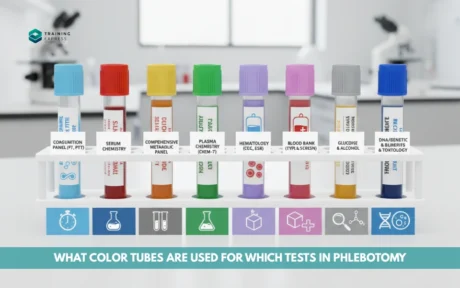

Many children and young people are carrying terrible stories in life. It’s essential to let them know they’re not alone and that they deserve to be loved and cared for, physically and mentally. With a loving environment, they can grow up safe and secure and achieve the best outcomes in life. Multi-agency work is a partnership approach that brings impressive results for safeguarding children and the younger generation. By working collaboratively, practitioners provide a seamless response to those with multiple and complex needs and secure improvements in their lives. Read on to learn more about multi-agency working in safeguarding, its benefits, and how it reduces the possibilities of abuse.
Table of Contents
What is a multi-agency working in safeguarding?
Multi-agency working is where professionals from different agencies collaborate to achieve a joint mission. They share tasks, responsibilities and goals to support children and families at risk of safeguarding and those with additional needs. Again, it’s an approach employed in many different scenarios to reduce harm and improve the life quality of people suffering from abuse, neglect or exploitation.
Some children may show all or none of the signs of abuse or violence they suffer. Therefore, practitioners should get a detailed understanding of a child’s situation. Once they know what the victim is suffering from, they can take necessary actions to reduce the factors that make children and families vulnerable to violent behaviour.
Besides that, organisations must support a continual learning process to ensure effective multi-agency working. There must be opportunities for agencies to come in contact with each other, share ideas efficiently and gather the information they need to provide the best support to children and young people.
Why was multi-agency working introduced?
Multi-agency collaboration working is not a new practice. In the mid-nineteenth century, health and social services were working hard to reduce poverty in England. Later, in the 1980s, during the Thatcher government year, the foundation of multi-agency partnership working was established.
Multi-agency working allows practitioners to evaluate an individual’s issues from multiple perspectives rather than focusing on a specific area. The importance of such an approach was noticed after the release of the Children Act 2004, which showed how this partnership approach helped practitioners work towards the five key outcomes from the UK government initiative “Every Child Matters.”
Key Factors in Effective Multi-Agency Working
The ultimate goal of multi-agency working is to identify and prevent the various problems that can harm a child’s learning and development. However, some crucial factors need to be considered while working with individuals with multiple and complex needs.
Communication

Communication is the key to effective multi-agency working, ensuring positive collaboration between agencies. By communicating well, you can share your ideas and knowledge in the most effective way to keep children safe and promote their welfare. It helps in the establishment of clear and shared aims, trust and mutual respect between those involved in the process, such as agencies and practitioners.
First and foremost, be clear about what information you share and what you’ve chosen not to disclose. Besides that, keep written records of your communication to show evidence of your decisions, actions and history. When you receive information, be aware of your responses. In addition, acknowledge that you’ve received the information and inform them how it helped you.
It’s important for professionals to set clear pathways for communication to promote collaboration and cooperation, and understand the safeguarding policy and their responsibilities. Practitioners can improve their performance and reach their goals by effective communication.
Strong work relationships

Successful outcomes are achieved through good relationships and teamwork. Therefore, practitioners across services must develop positive working relationships. This way, they can bring new insights to the table and reach their goals fast. Moreover, by maintaining good work relationships, all team members feel involved, equally valued and trusted. They can share skills, expertise and information better and implement excellent support plans for children and young ones.
To build real real relationships at work, all team members must maintain consistent communication and be positive in interactions. Moreover, they must be open and honest when working with children and families, share insights and perspectives about each child and value each other’s role in protecting children and adults from abuse. Working together from an early stage will help practitioners understand their role in preventing child abuse. Professionals also need to put shared decision-making into practice to have a good knowledge of the benefits, harms and possible results of different options and make the right decision about treatment and care.
How Does Multi-Agency Work Reduce the Risk of Abuse?

Multi-agency working ensures the best interest of children and vulnerable adults, and such approaches are proven to protect them from harm and abuse.
First of all, professionals from different backgrounds receive various reports about child abuse and neglect. They are exposed to many situations when working with the victims. By sharing their opinions and workload, they can develop ideas, properly evaluate the situation and make the best decision for protecting children and families. The joint working of professionals makes the safeguarding process much faster and more reliable. With an open approach and honest relationship between professionals and agencies, specific needs are met, and problems are resolved much more efficiently.
Benefits of Multi-Agency Working
One of the most incredible benefits of multi-agency working is the reduced work pressure. Everyone in the team shares their workloads and responsibilities in safeguarding children and vulnerable adults. As a result, they can complete their tasks with less effort, create a positive and productive work environment and meet the demands of challenging roles.
Multi- agency collaboration involves sharing the best practices and experiences between different organisations to gain insights into children’s well-being needs. By sharing knowledge, practitioners can improve the quality of their services, support the victims exceptionally and grow within their roles.
The partnership working of a range of professionals creates a robust platform that helps achieve a successful outcome for the young generation and the children. Moreover, everyone involved in the process understands the support plan. So, it’s better for those receiving the multi-agency support or interventions, as they don’t have to deal with practitioners from separate agencies who are unaware of what others are doing.
Who is involved in Multi-Agency Working?
Practitioners from many agencies are involved in multi-agency working, sharing their goals, tasks and responsibilities. These professionals can come from the healthcare industry, educational institutions, mental health services, social care, youth work and other childcare services.
If you want to learn more about professionals’ role in safeguarding children, here’s our Safeguarding Children – Level 2 course. The course covers a wide range of training modules to give you real insights into your safeguarding responsibilities.
Why is Multi-Agency Working Important?
Multi-agency working is vital for its various benefits to those with health and social care needs. The partnership approach helps identify safeguarding concerns among children and young generations early to minimise the risk of later life issues. Besides that, the improved information sharing helps develop a shared vision and purpose between team members, promotes mutual support and provides a faster, more coordinated response to reduce the risk of abuse.
Overall, it’s effective and much better than individual agencies who work without collaboration and provide low quality support.
What are the Challenges of Multi-Agency Working?
Multi-agency working makes a significant contribution to preventative and early intervention services. However, along with the impressive benefits, there are many negative aspects of the approach that must be taken into account.
Multi-agency working involves a wide range of people working together to achieve a common goal. But in a large team, not everyone contributes equally. Therefore, many conflicts and disagreements arise, and reaching a mutually acceptable solution may take time. Moreover, it takes more work to coordinate a large number of people performing different tasks.
Furthermore, practitioners come from different work environments and face difficulties coping with the new atmosphere. For instance, professionals, such as healthcare workers, are used to working seven days a week, whereas some other professionals have a shorter workweek. Therefore, friction between team members arises, and it becomes challenging to create an influential workplace culture.
While working in a multi-agency team, all members might not understand their roles and responsibilities, which can lead to confusion and poor work. Again, the lack of communication can result in a potential conflict between practitioners and hinder their work. As a consequence, children, vulnerable adults or families may not receive the support they need.
How does the CAF relate to multi-agency working?
The common assessment framework (CAF) helps identify and address children’s unmet needs. It’s replaced by the early help assessment (EHA) and is a shared assessment tool employed across different agencies in the UK. Using CAF, childcare practitioners look at the various aspects of a vulnerable child’s life and create an action plan to offer the best support possible. Families and carers of the victim are also involved in the process.
How Does the Common Assessment Framework Help Families?
The CAF helps professionals identify what actions work and what don’t and how to develop a solution to meet the needs of children and young persons who are at risk. Through this framework, they can develop a shared understanding of the child’s needs, put those requirements at the heart of their decisions and deliver integrated services to meet them. For instance, a CAF action plan may address how school staff members can coordinate with social workers to improve student attendance and outcomes. There may also be some variations in parental arrangements based on a child’s wishes, and many different techniques may be applied to engage hard-to-reach families in their child’s education.
The primary goal of the common assessment framework (CAF) is to identify and address the issues children face, improve their life and education and meet their individual needs.
Conclusion
Domestic violence has detrimental impacts on children, young people and families. It affects a victim’s work life, resulting in a decline in performance and productivity. Moreover, the physical and emotional abuse children go through can have long-lasting effects on their development. In multi-agency working, practitioners from different agencies work collaboratively and maintain their unique roles to prevent abuse and help individuals grow up safe.
FAQ
- What is multi-agency working?
IIt’s a collaborative approach where practitioners from different agencies work together to find the safeguarding solution for children and young people who are at risk of abuse. For instance, the MARACs provide a multi-agency response to protect high-risk domestic abuse victims.
- How do multi-agencies work together?
Professionals from many agencies work together on various projects to achieve a common goal. They share information, ideas, tasks, and responsibilities throughout the work process. By collaborating with each other, they can get new perspectives on a problem and make significant changes in their work process to improve service quality.
- What is an example of a multi-agency team?
A multi-agency team comprises many professionals from different agencies, such as social workers, physiotherapists, community nurses, occupational therapists, mental health specialists and local GPs.
- What are the barriers to multi-agency working?
Collaboration is essential for a healthy, professional relationship. But, a lack of communication, cooperation and disagreement between practitioners result in an ineffective team. When partners don’t share their morals and ideas with each other and disagree on goals, conflicts may arise, and they might end up working against each other.
- Why is dealing with abuse important?
Dealing with abuse is essential to prevent further harm. In children and younger generations, maltreatment can result in lifelong psychological consequences. Victims may suffer from low self-esteem, educational difficulties, depression, and struggle to form relationships.
Learn More
- Available Courses
- Animal care10
- Design28
- Training9
- Accounting & Finance Primary50
- Teaching & Academics Primary37
- Teaching23
- Quality Licence Scheme Endorsed181
- Law10
- IT & Software230
- Job Ready Programme52
- Charity & Non-Profit Courses28
- HR & Leadership4
- Administration & Office Skills4
- Mandatory Training36
- Regulated Courses4
- AI & Data Literacy26
- Health and Social Care290
- Personal Development1632
- Food Hygiene119
- Safeguarding80
- Employability288
- First Aid73
- Business Skills296
- Management425
- Child Psychology40
- Health and Safety533
- Hospitality28
- Electronics31
- Construction63
- Career Bundles201
- Marketing39
- Healthcare172

 Food Hygiene
Food Hygiene Health & Safety
Health & Safety Safeguarding
Safeguarding First Aid
First Aid Business Skills
Business Skills Personal Development
Personal Development




